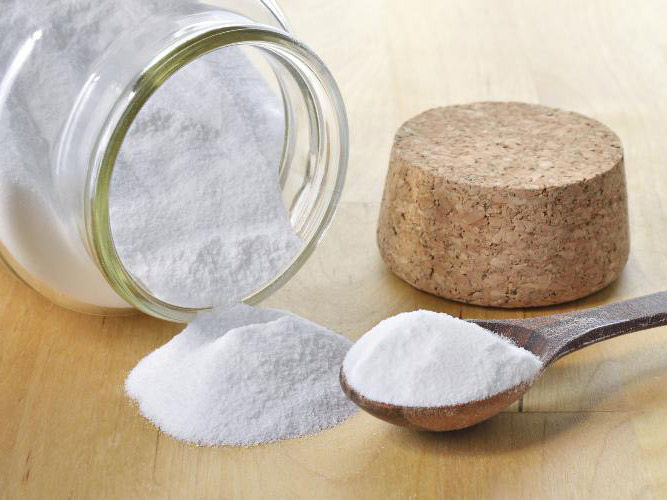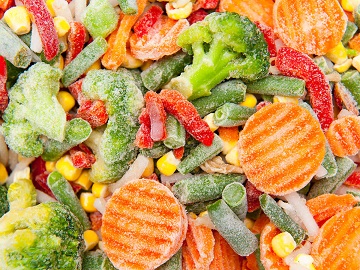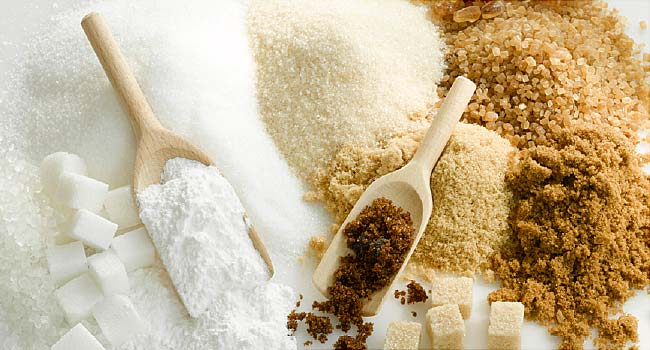Swollen legs are often referred to as cankles, and really, when the width of your leg is the same right from your knees to your ankles, can you really be surprised at this term? And even though you may not know anybody around you who has swollen legs, the fact remains that this phenomenon is actually pretty common. Needless to say, having cankles is not a good sign because it points at an underlying health concern.
And if you happen to be one of those poor souls who is suffering from swollen legs and doesn’t know what to do about them, here are some foods that cause swelling in feetwhich you can avoid or completely eliminate from your diet.
What Is Edema?
The space between the cells in your body is called extracellular space, and when fluid is trapped between those spaces, it gives way to swollen legs aka edema. It occurs most commonly on one’s feet and ankles, mostly due to gravity pulling all liquid accumulation towards the lowest points of your body.
Foods That Cause Swelling in Feet
Now that we know what edema is, here’s a list of foods that may cause swelling in feetmostly due to the high content of sodium or sugar in them. Make sure you restrict/remove them from your diet when possible.
Sodium

Consuming too much salt (or salty foods) is one of the top reasons why people suffer from swollen legs. The thing is salt or sodium is water retentive, meaning the more salt you consume, the more water your body will retain. The more liquid there is in your body, the more pressure it puts on your blood vessels, causing them to leak excess fluids into the extracellular space inside your body. Here’s a list of foods high in sodium that you should avoid at all costs:
- Canned vegetable juice: Surprised to find this entry? Don’t be. Contrary to what corporate might have you believe, canned/packaged juice is never a good substitute for the real thing. And that’s because of the unnecessary amounts of chemicals like preservatives added to them. Oh, and they also happen to have abnormally high levels of sodium in them. Opt for fresh juices and if that’s not possible, eliminate their canned counterparts from your diet. PS – tomato is a vegetable, not a fruit.
- Processed meats: It’s the same as canned veggie juice, except that now, it’s with meat. In fact among Americans, processed meats are the worst offenders in the category of foods that cause swelling in feet.
- Frozen vegetables especially if they contain added sauces (which are high in sodium).

- Processed grains: This one’s another surprise because not many people know that instant cereals that contain grains like oats have extremely high levels of sodium. It’s the same for pretzels, salty crackers and microwave popcorn.
- Dairy: Avoid processed dairy foods and instead opt for fresh products.
- Canned foods: Soups, beans, tuna….The list is endless. Say no to them all.
- Convenience foods: Much like processed/tinned/canned/preserved foods, convenience foods are terribly high in sodium. This is why it’s best to not only avoid frozen veggies, but frozen meals, pasta mixes, soups, rice and even readymade microwave meals.
- Salted nuts: If you really want to eat nuts, then opt for the unsalted variety.
- Seasoning and condiment blends: Those little oregano and chili sachets you get for free with your pizza? Yeah. Stop using them. The same goes for soy sauce, readymade salad dressings and catsup.
Sugar

Much like sodium, sugar is water retentive, which means the more sugar you consume, the more water it will retain and the more your ankles will swell. Some sources of sugar are obvious, like jams, candies, syrups, pies and waffles. But there are some foods that cause swelling in feetthat most of us aren’t aware of, and the most popular among them are listed below:
- Carbonated drinks: Because believe it or not, these drinks contain not only massive amounts of sugar, but high amounts of sodium as well!
- Dried fruit: To put things into perspective, eating a small box full of raisins is equal to eating 3 cubes of sugar. So say no to raisins, almonds, cashews at all.
- Yogurt: Yogurt is naturally sour, which is why manufacturers add sugar to it to sweeten its taste. It’s the same with both flavored and unflavored yogurt. I mean, an 8oz cup of yogurt is equal to 10 cubes of sugar, which is a massive amount!
Is Swelling of Feet Serious? What Should I Do?

There’s no denying that having swollen feet, apart from being aesthetically unappealing, is terribly uncomfortable. If it’s occurring due to your food choices, then you have nothing to worry about as it can easily be reversed by improving your diet and/or limiting your portions.
However, sometimes edema is a symptom of an underlying health problem pertaining to your circulatory system or your heart. Not to mention that having swollen feet for an extended period of time can lead to new health complications, including increased chances of infection, poor blood circulation, ulcers, loss of elasticity in the blood vessels or even muscle and joint problems.
Whatever the cause of your edema may be, always visit your doctor to find out the reason behind your swollen feet. If it’s because of your diet or lifestyle choices, then that can be reversed by simple steps:
- Include high fiber foods in your diet.
- Consume more protein.
- Drink lots of water.
- Make sure you don’t sit or stand in a position for too long.
- If your feet start to swell then simply place them at a higher angle than the rest of your body.
- Go to a sauna two times a week.
However, if your edema is due to medical reasons, then it’s best to follow the medication prescribed to you by your doctor.